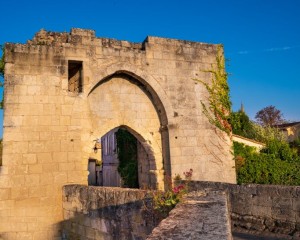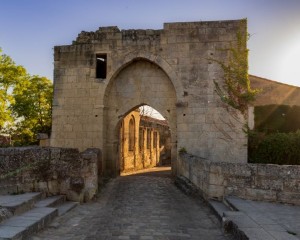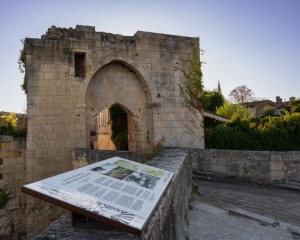Saint Emilion's ramparts were commissioned by England in the 12th century to protect prosperous Saint-Emilion's village.
This fortification wall can also be considered as a ceremonial and prestigious wall whose primary purpose would have been to show the power of the village more than to protect it. Nevertheless, it was necessary to pay a tax to enter the intramural village, representing a new source of wealth.
The people began by digging themselves around the village deep ditches. With the extracted stones, they built an enclosure wall covering more than 18 hectares and running for about 1.5 km around the village. This wall was in all probability flanked by seven gates and small defensive towers, a guardrail connected these gates to each other.
We found:
These other gates, expect the Brunet gate, thus a majority of the old fortifications were destroyed during the religion wars in the 16th and again in the 19th century with the drilling of the Guadet street and the desire to open the city to modern circulation.
The Brunet gate, takes its name of the Gascon " Branet " meaning moorland, heather, clearing. This door opened onto the countryside. With a length of 9.50m long and a width of 3.90m, one can still guess between its two arches a stunner by which the defendants threw stones and boiling water at the attackers. The sides were widened in the 17th century so that the carts could cross each other. The passage was closed with wooden doors on hinges that are still visible today. Excavations have uncovered the foundations of an entrance "châtelet" upstream of the gate, today represented by a circular paving on the ground on either side of the bridge entrance.
Grand Saint-Emilionnais Tourist Office
Le Doyenné - Place des Créneaux
33330 SAINT-EMILION





